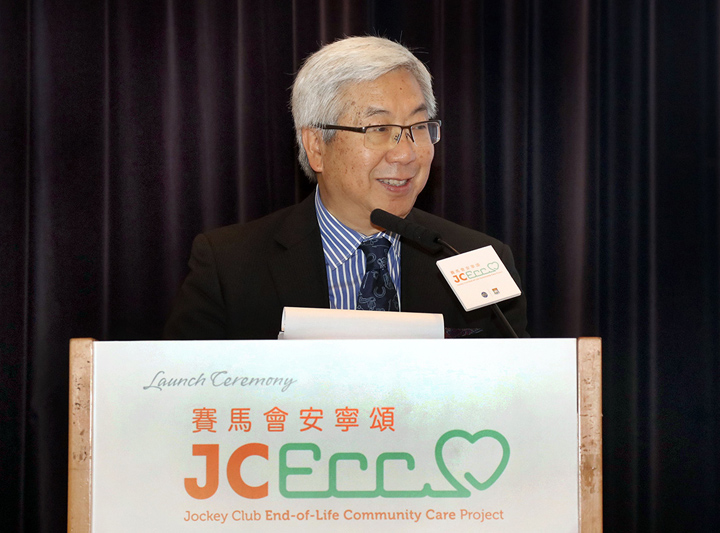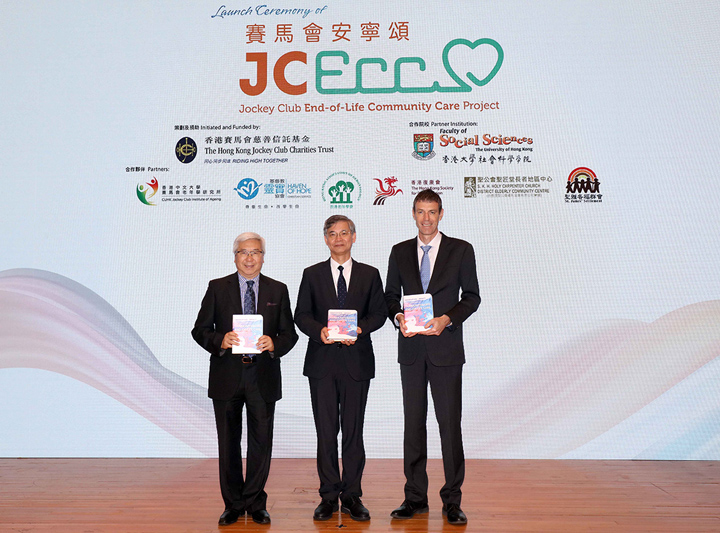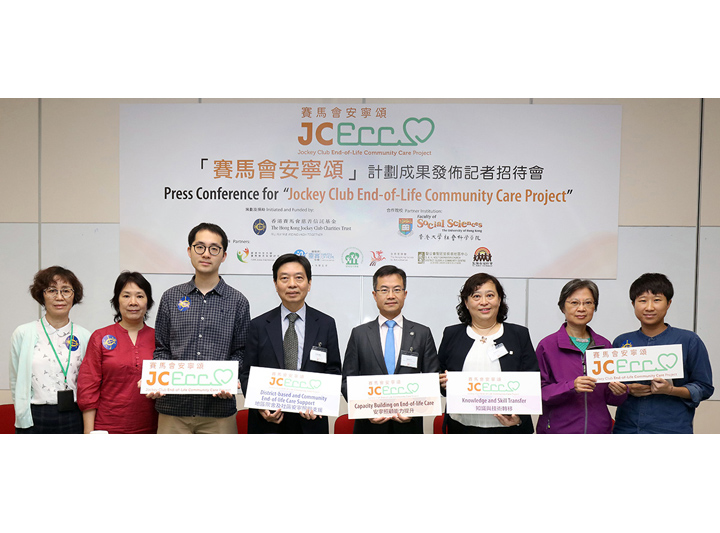

Charities & Community
Elderly Services
Jockey Club launches Phase 2 of end-of-life community care project to enhance advance care planning
07/05/2019
In 2016, the Club’s Charities Trust launched the Jockey Club End-of-Life Community Care Project (JCECC), a first-of-its-kind initiative to pilot innovative end-of-life care service models for elderly people with terminal illnesses and raise public awareness of the issue.
Over the past three years, the project has received overwhelmingly positive feedback from its various stakeholders. It has benefited more than 5,000 patients and their family members with palliative care and psychosocial and spiritual support, enabling them to make informed choices of care options.
In view of this, The Hong Kong Jockey Club Charities Trust has made further donations to launch Phase 2, bringing total funding to the project to over HK$255 million.
Bringing together two universities, five NGOs and the public and private healthcare sectors in a multi-disciplinary, cross-sectoral collaboration, the project helps enhance end-of-life care in Hong Kong with special emphasis on the interface between social and medical systems. Through end-of-life care services in elderly homes, home-based end-of-life care services, volunteer-focused psychosocial support services and capacity building, it is hoped that senior citizens can make informed choices of care options and enjoy an improved quality of life at their final stage.
Building on experience gained from the first phase, Phase 2 of JCECC will see an integrated community end-of-life care service model established. Through a standardised service workflow and framework, the NGOs will assess the needs of each case and tailor-make physical, psychological and practical support that suits individual needs. The coverage of end-of-life services in Phase 2 of JCECC will also be extended to more elderly homes, while more competence development programmes will be offered to service providers.
Under the first phase of the project, JCECC has already served 36 elderly homes, benefited 777 patients in their own homes, trained over 10,000 healthcare and frontline professionals and engaged 586 volunteers.
According to a survey on the first phase of JCECC conducted by the Faculty of Social Sciences of The University of Hong Kong, conditions of physical discomfort amongst the home-based patients were reduced by 18% after receiving JCECC services, while the practical and psychosocial support offered by the project’s NGO partners was able to relieve the anxiety of patients and their family members.
About 13 days’ reduction in the number of hospitalisation days was recorded among elderly home-based patients in the space of three months before death. Meanwhile, an average of five days’ reduction was found in the period of hospitalisation required by home-based patients in the six months before they passed away.
The survey also showed that public awareness and acceptance of end-of-life care services had increased, along with demand for them. The number of interviewees who were aware of end-of-life care services increased from 30% in 2016 to 39% in 2018, and 83% of interviewees indicated that they would opt for end-of-life care.




